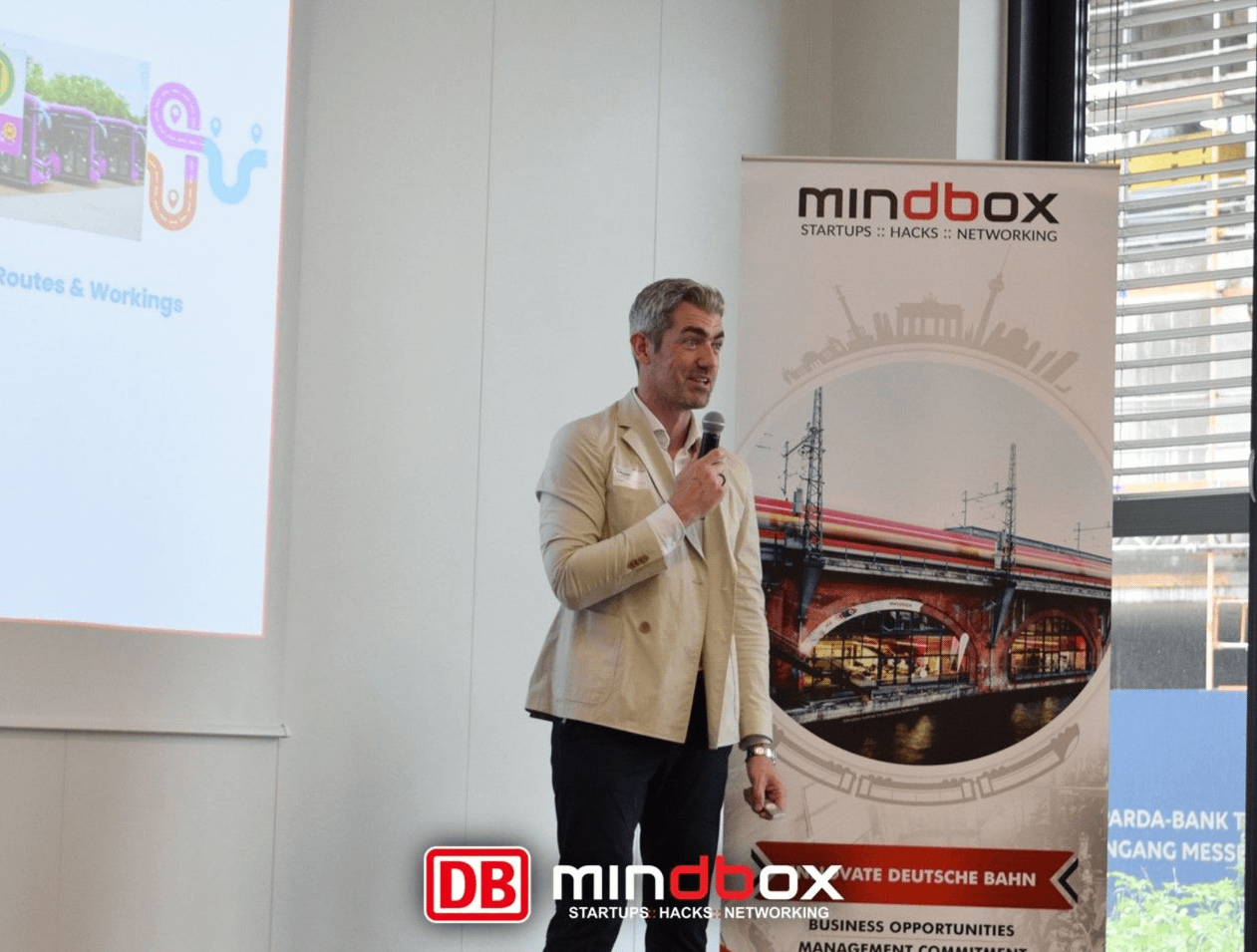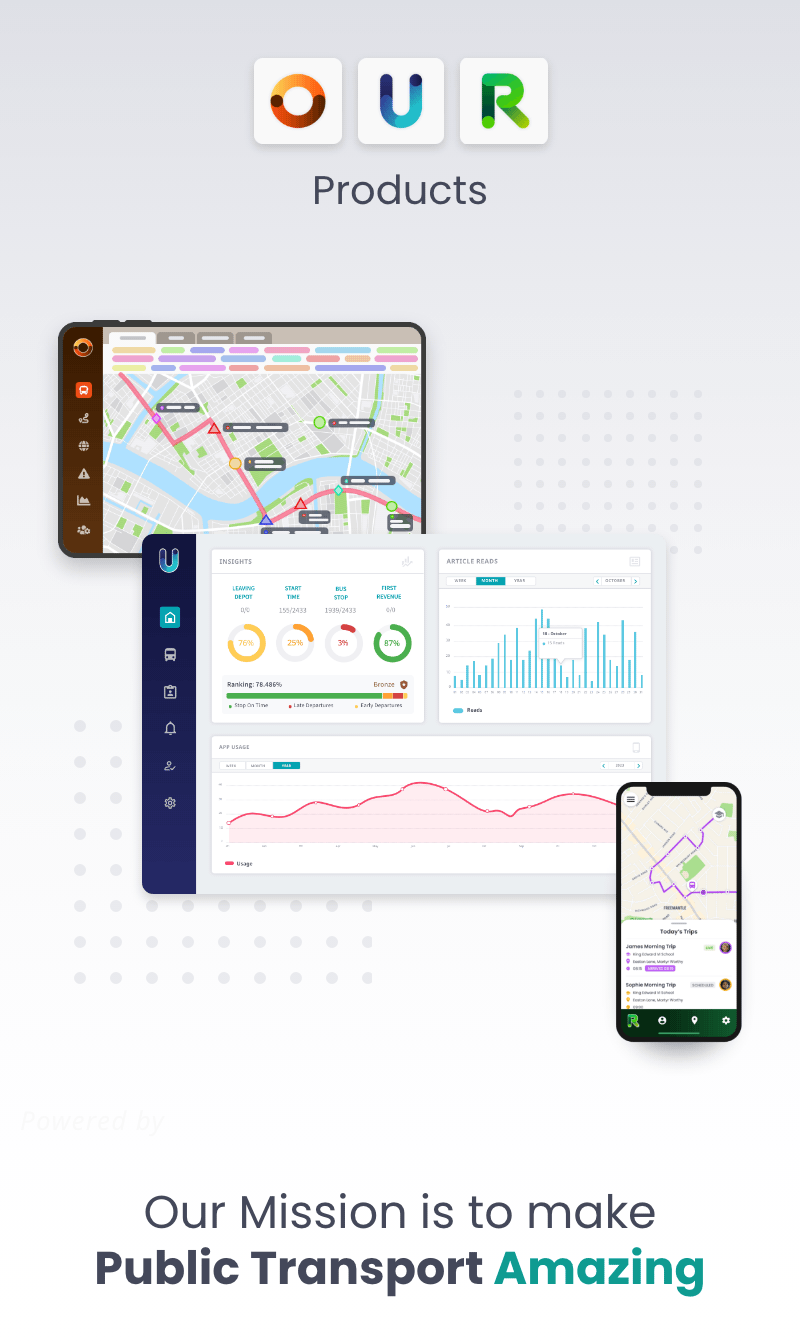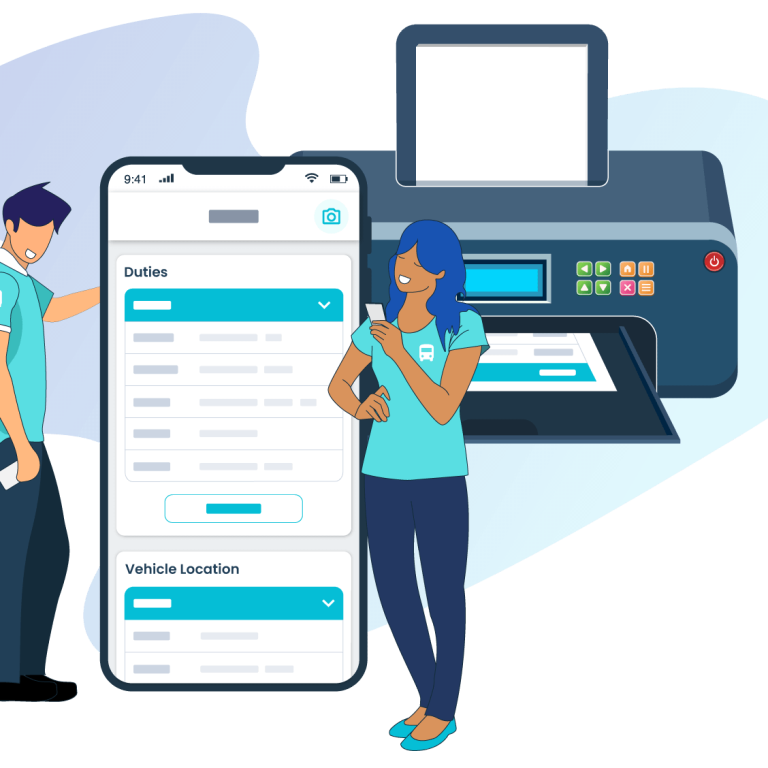As we hit the halfway point of our 100-day proof of concept (POC) with Deutsche Bahn (DB), uTrack CEO Eamonn Hughes and Customer Success Manager Yvonne Skalban traveled to Frankfurt for the midterm presentations and workshops. The event was held in the iconic DB Brick building, a space that perfectly blends historical architecture with a modern, innovative atmosphere – an ideal setting for a day focused on the future of regional traffic.
The four startups that won pitches in the Regional Traffic 2024 program back in May in Berlin were all present, showcasing their progress so far. Each project was introduced by the respective DB business unit they have been working with, providing context and outlining the specific challenges they are aiming to solve. For uTrack, Ann-Sophie Gerz, Project Manager for Operations Excellence (OPEX) at DB SEV, made the introduction. She provided valuable insights into the challenges faced by DB SEV in managing rail replacement services and how they are looking to uTrack’s solution to address these issues.
Eamonn then presented the progress to date. One of the first tasks we tackled was adapting our existing mobile app to German, ensuring it was user-friendly for the German bus drivers who would be using it. This adaptation was crucial for smooth operations and communication during the testing phase. We also focused on setting up Origin for DB SEV, which involved importing schedules and data feeds into our system. This laid the groundwork for several tests we conducted within a relatively short timeframe. The initial tests were particularly exciting, as they allowed us to validate the real-time tracking capabilities and data feeds with bus drivers on their scheduled routes in Berlin. These tests were a critical step in demonstrating the effectiveness of our solution.
After the presentation, we moved into the next phase of the day – a pitch for an interactive workshop designed to gather insights and input from various DB experts. This hybrid event, both in-person and online, required meticulous coordination, and the DB mindbox team, led by Anne Reichenbach-Lange, ensured everything ran smoothly.
During our workshop, we delved into the details of the POC progress and engaged the expert audience in a collaborative session. Participants helped us identify valuable contacts, resources, and offered general advice on making the POC as successful as possible. They also shared their expertise on bridging the gap from a POC to full-scale implementation within a company as large and complex as Deutsche Bahn.
The day continued with insightful presentations and workshops from the other startups – SonoBeacon, geOps, and OpenCapacity. We also heard from guest speakers like Katja Machatsch, Head of Product Innovation and Product Management at DB Regio, who shared thoughts on innovation in the transport sector. The event wrapped up with networking over free pizza, where we had the chance to exchange ideas with other participants. Notably, this led to a collaborative opportunity with SonoBeacon. Their POC, which focuses on estimating passenger flows, also involves collecting GPS data from the rail replacement buses on the Riedbahn – a resource that could significantly benefit our project.
The importance of rail replacement services cannot be overstated, especially with the overhaul of the Riedbahn which officially started in July this year. A crucial link between Frankfurt and Mannheim, Deutsche Bahn is modernising the entire 70-kilometer stretch, impacting schedules at major stations like Frankfurt Hbf, Frankfurt Airport, and Mannheim. During this period, DB SEV has prepared an extensive replacement bus service with 150 new buses and 400 drivers from across Europe. These buses will play a vital role in maintaining service continuity and minimising passenger disruption.
Following the event, we received the green light for the data exchange with SonoBeacon, and data has already been shared. We’re now looking forward to analysing this data within Origin, hoping to extract valuable insights that will enhance the efficiency of rail replacement services. DB mindbox and its program are all about driving innovation, and this event demonstrated that even within a massive organisation like Deutsche Bahn, innovation can happen swiftly and effectively.
All in all, we left the midterm event in Frankfurt feeling inspired and motivated, as always, but also with a renewed sense of purpose and direction. The networking and collaborative discussions opened up new possibilities, and we are eager to see how these connections and insights will shape the next phase of our POC.






